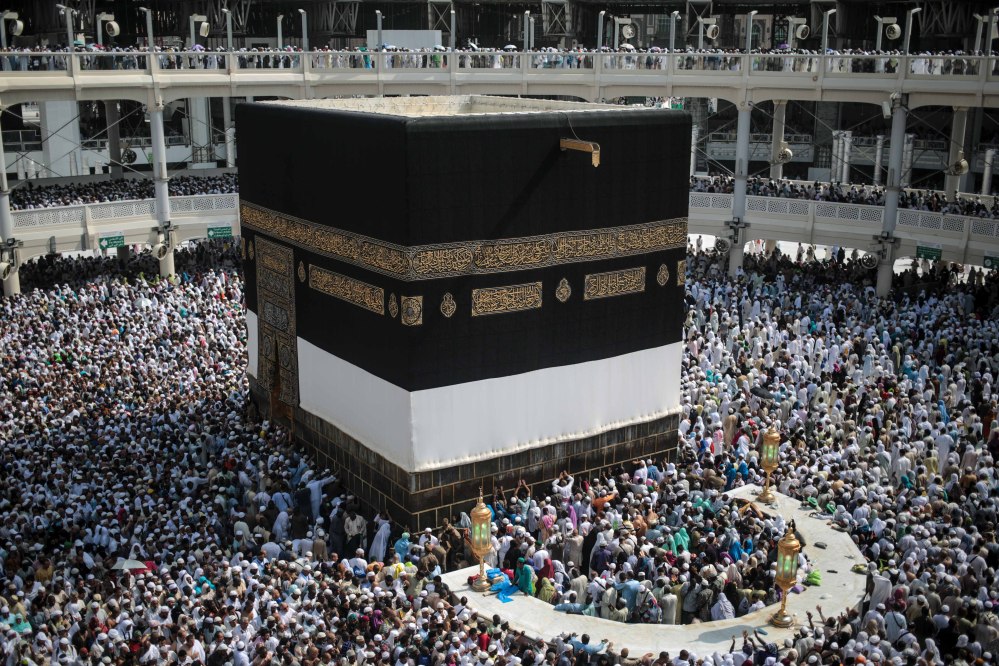MECCA, Saudi Arabia — Saudi Arabia has deployed 100,000 security personnel to oversee the annual Islamic hajj pilgrimage that begins Tuesday, the Interior Ministry spokesman said, underscoring both the massive arrangements needed to secure one of the largest pilgrimages in the world and the multitude of threats the hajj faces.
“We always concentrate on hajj considering that a threat might exist,” Maj. Gen. Mansour al-Turki said. “We’ve been targeted by terrorism for years now and we know that we are a target for terrorist groups.”
Al-Turki spoke Saturday from the Interior Ministry’s security headquarters for the hajj, located in the sprawling tent city of Mina just a few miles outside the Grand Mosque in Mecca that houses Islam’s holiest site, the cube-shaped Kaaba.
Roughly 3 million people from around the world are expected to converge at the Kaaba, in Mina and other nearby areas for the hajj, which lasts about five days. It is a series of rituals meant to cleanse the soul of sins and instill a sense of equality and brotherhood. All able-bodied Muslims are required to perform the hajj once in their lives.
Members of an elite counterterrorism unit, traffic police and emergency civil defense personnel are among those deployed to help with crowd control and safety. They are supported by troops from the army and national guard, al-Turki said.
Inside the Interior Ministry’s nerve center, police monitor dozens of screens with feeds from about 5,000 cameras installed throughout Mecca and Medina, the two cities frequented by pilgrims.
Civil defense emergency personnel were among the first responders when a crane collapsed at the Grand Mosque on Sept. 11, killing 111 people and injuring nearly 400 others who had come for the hajj. Authorities blamed the collapse on high winds and the contractor was faulted for not following operating procedures.
On Thursday, the kingdom’s military and police put on a parade in Mecca, with security forces jumping through burning hoops and thwarting a mock terrorist attack. The show was aimed at deterring any would-be troublemakers, and was attended by Crown Prince and Interior Minister Mohammed bin Nayef, who himself was the target of a terrorist attack in 2009.
Send questions/comments to the editors.



Success. Please wait for the page to reload. If the page does not reload within 5 seconds, please refresh the page.
Enter your email and password to access comments.
Hi, to comment on stories you must . This profile is in addition to your subscription and website login.
Already have a commenting profile? .
Invalid username/password.
Please check your email to confirm and complete your registration.
Only subscribers are eligible to post comments. Please subscribe or login first for digital access. Here’s why.
Use the form below to reset your password. When you've submitted your account email, we will send an email with a reset code.